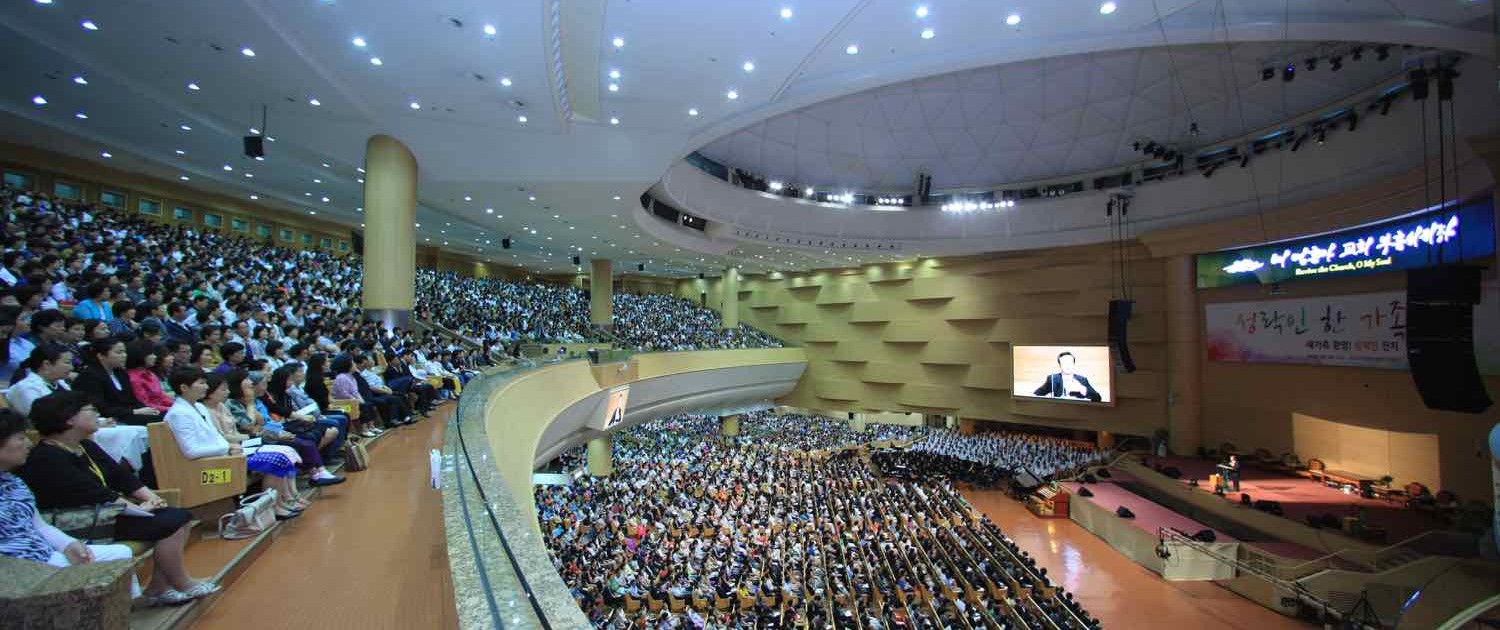2016.08.21_God’s Pain and the Church

Overseer Sung-Hyun Kim

[Matthew 26:36-46]
God,
our eternal father
sacrificed His Son who is forever one with Him (Jn 10:30).
to save us,
who are lowly, full of sin and mere creations.
God had to suffer the great pain (Ge 3:15)
of giving His Son over to death,
while the Son also had to bear the great pain (Mt 26:38)
of the way of the cross,
giving His life to save us.
God’s suffering
gave us a future and an identity (Jn 1:12)
so that we may never
suffer pain again.
We who are the church of Jesus Christ
must not lose our gratitude and reverence
towards the Lord for a single moment
while we are on the earth
where the Lord was afflicted,
that is, until these times of crisis all pass away.
Moreover, we ought to make sure
His pains result in great salvation
and the power of eternal life in our church (Jn 3:16).
For that, we also ought to carry the cross (Lk 9:23).
○ Love and sacrifice for the saints
are our duty.
○ Let us overcome this material world
and unite as one
for the success of the Lord’s church.
○ Let us have the faith to
overcome the hardships we encounter.
※ Let us together give glory and thanks
for the pain the Lord suffered.
Coming Soon
If you cut up the dried roots of a tree or a weed into small pieces and boil them in a soup bowl, that root which has a variety of nutrients, becomes an oriental medicine; if you drink it, your weakness in your constitution will be treated, gaining some physical power and enable recovery from your sickness. Likewise, in the Bible, there are many stories that are like dried tree roots or weed roots. There are also many names of people and places that are like the dried roots. All of those have their own meaning and contain specific revelations. So a preacher, putting all the various events in the Bible into the soup bowl to boil them like the dried roots, is supposed to make an oriental medicine for all of the listeners to drink. That is why the people who are witnesses of Jesus should read the Bible often. Just like when making an oriental medicine, being boiled more and more, it becomes inspiration. Only after you have prayed until God’s word inside of you is boiled over as inspiration and become inspired with the help of Holy Spirit can your message become a sermon. A sermon without inspiration is like a medicinal herb displayed in the herb store; it cannot be eaten and no effect will take place either. We are the witness of Jesus. We have the duty of witnessing not only through our deeds but also through the words of our mouths. Some people may tell me, “You are so inspired” or “You are spiritual.” Think about it – Medicinal herbs on the shelf of a store. What kind of effect can those herbs have? Just like putting the herbs into the soup bowl and boiling them, my soul should be like a soup bowl and boil them. I am always hot just like a soup bowl that is always boiling. That is why the various names of people and places in the Bible are boiled inside of me and eventually become effective medicine. Thus, I always boil inspiration out of the words and names of people and places in the Bible, just like how an oriental doctor makes medicine. And only if the church members can drink the boiled words like a hot medicine, can the words have an effect. If the boiled medicine becomes cold, it is ineffectual; so, too, can the church members receive the words only through inspiration. Before we believed in Jesus, we had no inspiration, and could not listen to the words that can only be received through inspiration. However, now, the Holy Spirit has come upon us, which means that each of us has the inspiration to receive God’s words in the Spirit. For this, during the worship service, we make our souls clean through repentance, earnestly pray, and praise God, thereby making our soul heat up. Only if we become the boiling hot soup bowl can the word of God be full of authority and inspiration when the word comes into us. We can gain victory in our lives of faith when we have inspiration. [gmedia id = 75]
Outline translated by Sarah Lee Chief Editor: Helen Nam
Letter translated by Sung-In Hong
Interpretations by Sarah Lee
Korean Summary by Ki-Taek Lee

